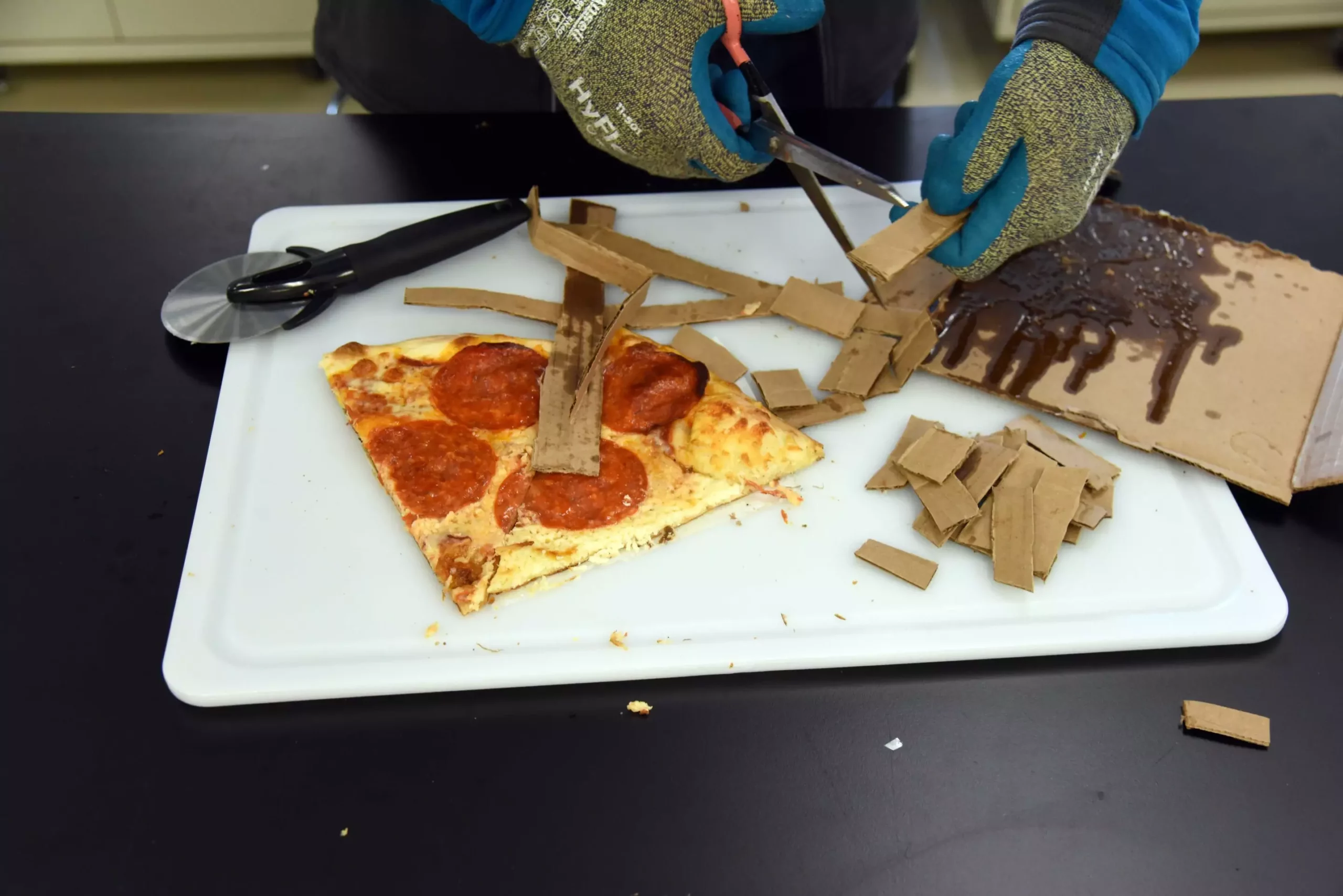

Pizza boxes have become an essential part of American culture, with roughly 43 million Americans consuming at least one slice of pizza every day. This beloved Italian-inspired dish contributes a staggering $47 billion to the U.S. economy annually. However, a significant portion of these pizza boxes end up in landfills due to contamination issues. Pizza boxes, like many other food containers, cannot be recycled because they are often soiled with grease and cheese, which are challenging to remove. These contaminants, known as FOGs (fats, oils, and greases), make the recycling process nearly impossible.
Researchers at the Idaho National Laboratory (INL) have taken on the challenge of revolutionizing pizza box recycling. In a recent study published in the Journal of Cleaner Production, these pizza-loving scientists have introduced a groundbreaking method to decontaminate cardboard using material separation capabilities. This innovative approach not only aims to make pizza consumption more eco-friendly but also holds the potential to save lives, particularly of U.S. soldiers. The inspiration for this research project stemmed from the Defense Advanced Research Project Agency (DARPA) ReSource Program, which sought to repurpose military waste, including common plastics, into valuable resources.
The team at INL, led by principal investigator Aaron Wilson, devised an experimental system that employs dimethyl ether (DME), an environmentally friendly chemical commonly used in refrigeration, to clean contaminated cardboard pieces. This system consists of two vertical stainless-steel reactors – one for separating liquids from solids using a solvent and the other for removing the solvent from the liquids. The contaminated cardboard pieces are loaded into the first reactor, where they are mixed with the solvent to draw out the contaminants effectively. The cleaned cardboard is then transferred to the second reactor, where the FOG contaminants, water, and salts are concentrated as crystallized solids.
The use of DME extraction represents a significant improvement over traditional water washing methods. Unlike water washing, which results in large volumes of wastewater containing a mix of contaminants, the DME extraction process operates in a closed-loop system that recycles the solvent for cleaning new waste items. This sustainable approach eliminates the need for excessive water consumption and waste disposal. The success of the pizza box cleaning case study paves the way for future projects aimed at converting waste into reusable materials.
The successful implementation of the material separation method for pizza box recycling has far-reaching implications beyond food waste management. It has the potential to revolutionize waste recycling across various industries, including military waste repurposing. By validating this system for high-contamination items like pizza boxes, researchers are confident in its applicability to battlefield waste. However, challenges remain, such as the need to make the system lighter for military applications. Efforts are underway to identify and replace heavy components with lighter alternatives to ensure ease of transport across rough terrains.
The journey towards sustainable waste management is a collective effort that requires innovative solutions and continuous research. The pioneering work done by the team at INL in tackling the pizza box recycling problem is a testament to the power of scientific ingenuity in addressing environmental challenges. By leveraging material separation capabilities and environmentally friendly extraction methods, we can pave the way for a more sustainable future where waste is repurposed into valuable resources.
Rogue waves have long been a subject of fascination and terror in maritime lore. These…
As the world grapples with public health challenges, especially those posed by infectious diseases, the…
The Sombrero Galaxy, also known as Messier 104, embodies a breathtaking blend of spirals and…
In recent advances in quantum electronics, a groundbreaking discovery leveraging the concept of kink states…
In the intricate tapestry of nature, ice often exists in a delicate balance with liquid…
In an astonishing event that captured global attention, a rogue object from beyond our Solar…
This website uses cookies.